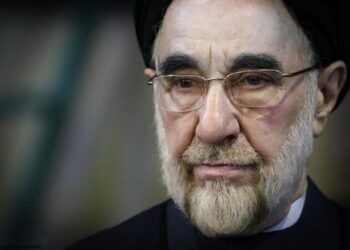The radar is part of a system in Europe designed to detect and then shoot down any Iranian missiles that might be fired at Europe.
The Iranian media, however, has been describing the system less clearly, often implying that the system would be used to fire American missiles at ground targets inside Iran rather than missiles in the atmosphere above Europe.
With Turkey’s agreement, the radar to detect any Iranian missiles being fired will now be based in Turkey. The actual anti-missile missiles will be based much farther away in Romania and Poland.
Iranian Foreign Minister Ali-Akbar Salehi said Saturday that Turkey owes Iran an explanation for its agreement to host the American base.
He said, “This system has caused concern in the Islamic Republic of Iran and many other neighboring countries {Salehi named none] and we don’t see any need to deploy such a system under the current conditions.”
He said, “We hope that our friends in Turkey provide the necessary explanations on this issue. We should not allow more misunderstandings in the region.”
Earlier President Ahmadi-nejad said, “Turkey is among our brothers and sincere friends, but when enemies deploy a missile system there and admit it is against Iran, we should be careful.”
Turkey never mentioned Iran as the rationale for he radar system when he announced its agreement to host the radar. The United States has never hidden the fact that Iran is the cause. Iran has no missiles at this time hat can reach very far into Europe. The United States, however, has wanted to have a defense deployed before the offense materializes.
The radar is expected to be in place and operating by the end of this year, the Pentagon said.
While neither Turkey nor Iran has ratcheted up he rhetoric toward hostile, each appears to be increasingly suspicious of the other. Turkey would not have agreed to host the radar, if it did not think that Europe and the United States would some basis for concern. And Iran is clearly worried that Turkey’s move shows the Turks do not trust the Islamic Republic.
There is also a real competition between Iran and Turkey for influence in the Arab world. Ever since he revolution, Iran has been seeking to make itself a power the Arabs cannot ignore. In the last few years, Turkey has ceased ignoring the Arab world—as it had done since the end of World War I—and has tried to build up its influence and ability to influence events across the Arab states. That puts Turkey in direct competition withy Iran.
The immediate friction involves Syria more than the radar. Turkey has grown increasingly disenchanted with the regime of Syrian President Bashar al-Assad and objects to his bloody crackdown on dissidents. Many in Turkey are irate at what they believe is active Iranian support for Assad repression.
Turkish officials have said the radar will be installed at an unnamed Turkish military base about 700 kilometers from the Iranian border, which would place it west of Ankara.
The US anti-missile system is a different version from what the Bush Administration sought to deploy in Europe.














